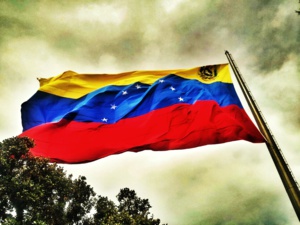Venezuelan President Nicolas Maduro has made new attempts to establish a dialogue between the major producers of oil. On his orders, the oil minister Eulogio del Pino will tour the OPEC countries, spanning those who are outside the organization, but have an impact on the market. "We have to stop this madness," - said Nicolas Maduro speaking about the fall in oil prices. He called for "a clear, consistent and collaborative" action.
Venezuela’s cost of producing oil is one of the highest in the OPEC, so the price drop is a major challenge for the government. The country, whose export revenues are dependent on oil by 96%, has not accumulated reserves during favorable market conditions, as the Persian Gulf countries, Norway and Russia did. Last year, party of Mr. Maduro lost the parliamentary elections, and now the economic crisis in the country may be exacerbated by a political crisis.
Venezuela previously attempted to reach a consensus among the major manufacturers, when Nicolas Maduro made a similar tour last year. In addition, Caracas urged OPEC to hold an extraordinary meeting in February, now this request is being considered. The next scheduled meeting of the cartel will be held in June. Last week, Mr. Maduro called Vladimir Putin. However today, a spokesman for the Russian president, Dmitry Peskov, said that "the application plan does not implies to talk about coordination (with other market players)." Dmitry Peskov said that "the exchange of views on the situation in the oil market with other countries, especially oil producers, actually takes place on a regular basis."
Russia cannot quickly reduce oil production because of the peculiarities of production in Western Siberia. As for America. It has thousands companies engaged in shale oil developing, which makes a real agreement on quotas and production levels impossible. It’s obvious that in the current environment, Saudi Arabia will not bear the burden of production cuts alone, as this action may impose risk of losing market share.
source: reuters.com
Venezuela’s cost of producing oil is one of the highest in the OPEC, so the price drop is a major challenge for the government. The country, whose export revenues are dependent on oil by 96%, has not accumulated reserves during favorable market conditions, as the Persian Gulf countries, Norway and Russia did. Last year, party of Mr. Maduro lost the parliamentary elections, and now the economic crisis in the country may be exacerbated by a political crisis.
Venezuela previously attempted to reach a consensus among the major manufacturers, when Nicolas Maduro made a similar tour last year. In addition, Caracas urged OPEC to hold an extraordinary meeting in February, now this request is being considered. The next scheduled meeting of the cartel will be held in June. Last week, Mr. Maduro called Vladimir Putin. However today, a spokesman for the Russian president, Dmitry Peskov, said that "the application plan does not implies to talk about coordination (with other market players)." Dmitry Peskov said that "the exchange of views on the situation in the oil market with other countries, especially oil producers, actually takes place on a regular basis."
Russia cannot quickly reduce oil production because of the peculiarities of production in Western Siberia. As for America. It has thousands companies engaged in shale oil developing, which makes a real agreement on quotas and production levels impossible. It’s obvious that in the current environment, Saudi Arabia will not bear the burden of production cuts alone, as this action may impose risk of losing market share.
source: reuters.com






